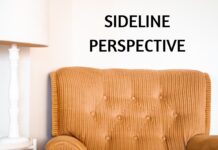
A proposed bill making its way through the Colorado legislature will restore for people with disabilities the option to sue businesses and governments for failure to comply with the Colorado Anti-Discrimination Act and also the federal Americans with Disabilities (ADA) Act. The bill, HB23-1032, will allow people with disabilities to bypass state administrative requirements and file their complaints directly in court.
“For reasons unknown, the courts have started requiring people with disabilities to exhaust their administrative remedies before being able to file a lawsuit,” said Andrew Montoya, an attorney working with the Colorado Cross Disability Coalition that’s part of a larger group working to pass HB23-1032. He cited a 1997 lawsuit in which a state court upheld the right for people with disabilities to seek relief in court or engage in the administrative process under the Colorado Civil Rights Division (CCRD).
Montoya also cited two recent disability discrimination court cases in which the courts required the exhaustion of administrative processes with the CCRD and effectively removed the choice to sue in court.
“This bill is about restoring that choice for people with disabilities,” said Montoya.
DeAnna Rumsey is a person with a disability and believes HB23-1032 “will encourage people to seek remedies when they are challenged with accessibility issues and bolster their confidence to engage the legal system if needed.”
According to the Centers for Disease Control, 1 in 5 people living in Colorado has a disability. Access to government remains a problem for people with disabilities and is among the reasons for the creation of HB23-1032.
Bureaucratic Malfeasance at the Colorado Civil Rights Division in ADA Cases?
According to the CCRD website, when a person with a disability feels they have been discriminated against, they must first file a complaint with the CCRD. Once the complaint has been filed, the CCRD investigates and begins the administrative process that exhausts most if not all possible remedies prior to issuing a determination either agreeing or disagreeing with the original complaint.
In 2019, the state audited the CCRD and found the division had not properly handled complaints in a timely fashion thus violating state statute. Auditors also had difficulty determining whether the CCRD had properly handled complaints.
Additionally, as Montoya said, the Colorado Anti-Discrimination Act (CADA) offers conflicting paths for people with disabilities who want to file discrimination complaints. For instance, the CADA has two sections that appear to contradict one another regarding the handling of discrimination cases. One section requires exhausting administrative processes through the CCRD while another says it’s not required.
Further complicating matters is Colo. Rev. Stat. § 24-34-602, which specifically allows people with disabilities to bypass the CCRD and go directly to court with their claims of discrimination. HB23-1032 is an attempt to clarify conflicting state laws and interpretations to provide people with disabilities the option of suing in court rather than engaging the CCRD’s bulky, bureaucratic processing of complaints.
ADA Cases and Drive-By Lawsuits
The concept of “drive-by lawsuits” has been around for almost a decade. The definition of a “drive-by lawsuit” is best described as a lawsuit filed either by or on behalf of a person with a disability, usually without either visiting a business. These types of lawsuits are more commonly filed under the Americans with Disabilities Act under Title III.
Under HB23-1032, the CADA and the ADA are linked together. “The CADA expressly incorporates the ADA’s standards and defenses,” said Montoya. “So, for instance, even though the CADA doesn’t mention the 2012 Standards for Accessible Design, a builder’s failure to construct a ramp in compliance would be a violation of the ADA and the CADA.”
In 2021, a Denver Post article noted civil rights violation cases under the CADA nearly doubled in 2020. Another Denver Post story published in 2020 said many “drive-by lawsuits” were forms of extortion, and noted one law firm in New Jersey had filed 52 lawsuits in Colorado over a 10-month period. The Colorado Springs Gazette published an editorial claiming HB23-1032 will “be a gift for trial lawyers.”
But Montoya doesn’t feel “drive-by lawsuits” will be a problem. Asked whether he thought the courts would be flooded with disability discrimination lawsuits, Montoya replied, “There might be an uptick in lawsuits” but added that “filing a lawsuit is not an easy or cheap thing to do.” He also added work was still being done on HB23-1032 to remove incentives for “drive-by lawsuits”.
Other Issues Related to HB23-1032
Montoya said that HB23-1032 will be amended to cover additional classes of people, including, “race, creed, color, sex, sexual orientation, gender identity, gender expression, marital status, national origin, or ancestry, in addition to disability.” It’s not certain how the expansion of the bill to include other classes will impact the courts.
Another potential problem with the bill may be a public backlash if there are sharp increases in lawsuits filed under HB23-1032. Montoya admitted that was a concern. Numerous negative consequences for people with disabilities followed the passage of the Americans with Disabilities Act, including lower employment rates, which continue today.
This offers a caveat emptor warning to legislators: good intentions are often the bricks on the road through Hell.









